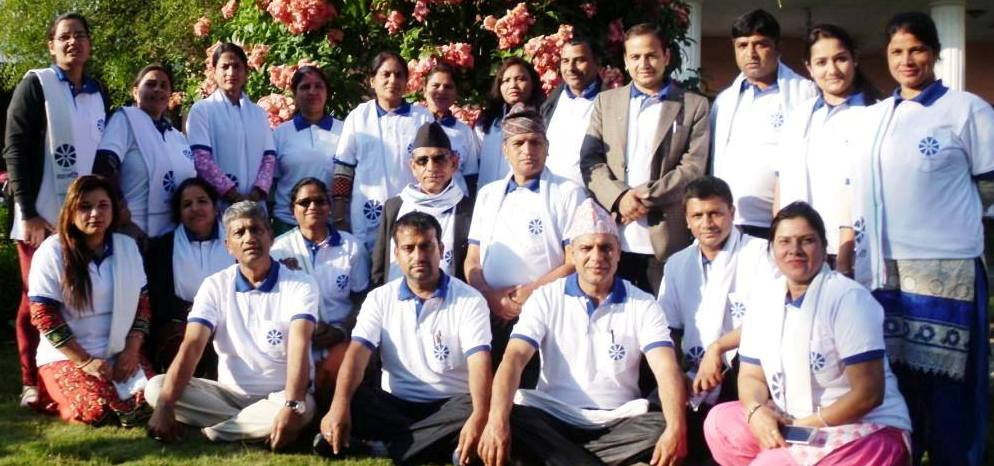



Inclusive Rural Development Project in Nawalparasi
SAHAMATI as an implementing partner with Good Neighbors International Nepal and with the technical and financial support of KOICA Nepal has implemented Locally Initiated Projects (LIPs) under the Inclusive Rural Development Project in Nawalparasi (IRDN) in Nawalparasi East of Gandaki Province and Nawalparasi West of Lumbini Province.
Inclusive Rural Development Project (IRDN) was designed based on the Saemaul Undong principle, which is translated as New Community or New Village Movement, from sae (new), maeul (village), and undong (movement). Its approach was based on the values of diligence, self-help, and collaboration, and contextualizes best development practices. Its astonishing success in reducing poverty and improving living conditions in Korea’s rural areas in the 1970s firmly established it as a global model for rural development.
Purpose of the project
The key goal and objective of the IRDN project was the same: it was designed to lift people out of poverty guided by the Saemaul Undong values (diligence, self-help and collaboration) as well as by development best practices that proved to work in the context of Nepal.
The overarching goal of the IRDN project was:
- To contribute for enhancing “quality of life” of people through socio-economic empowerment of the people residing in project area.
- To increase household income through promotion of commercial agriculture and livestock, economic infrastructure development, as well as youth and women employment.
This correspond to four outcomes, which are further described below:
- Outcome 1: Commercialized Agriculture
- Outcome 2: Commercialized Livestock
- Outcome 3: Economic Infrastructure
- Outcome 4: Youth and Women Skill Development and Employment

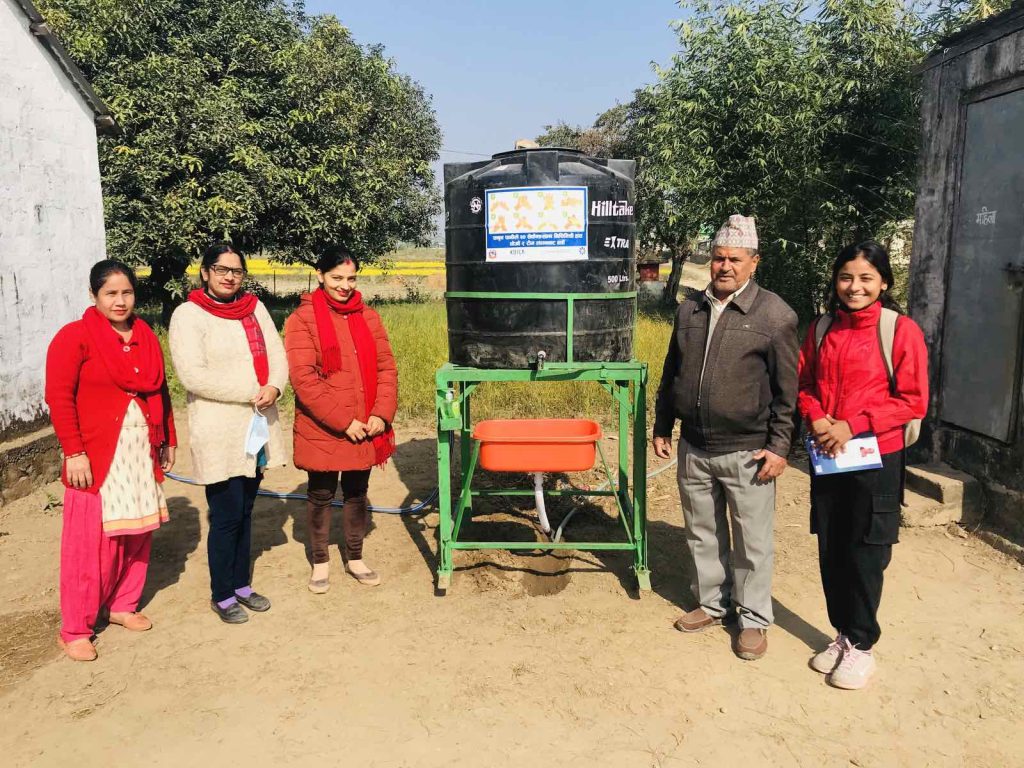
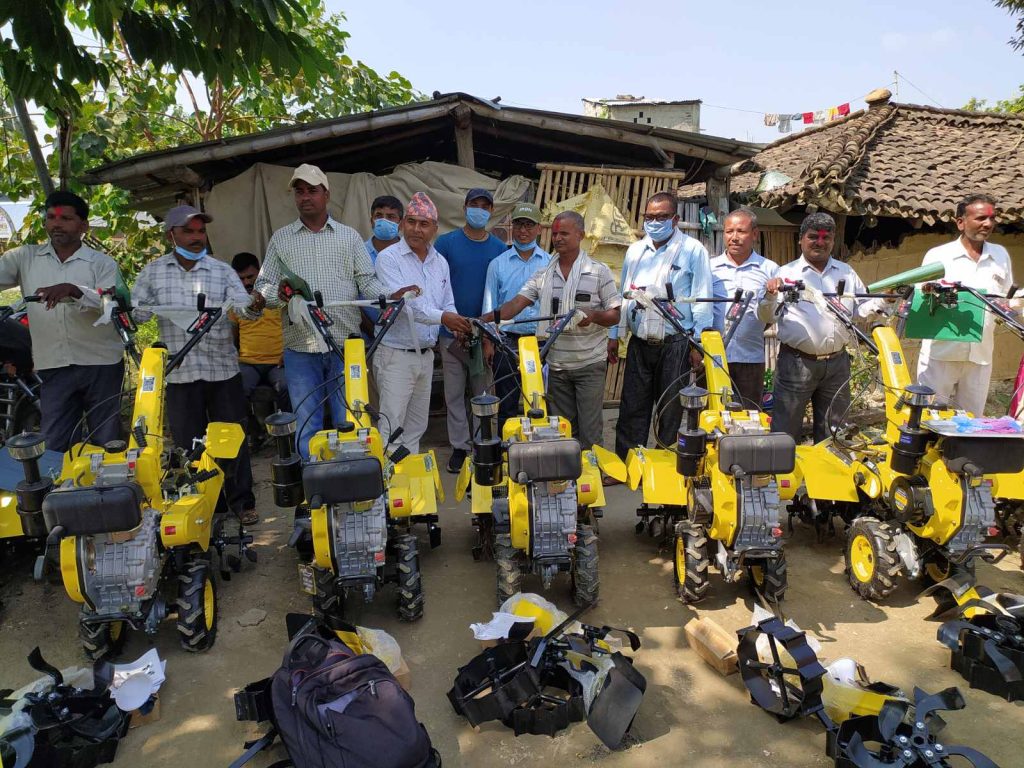

Key outcomes
Commercial Agriculture
Agriculture is the backbone of Nepalese economy. Majority of Nepalese depend on agriculture for their livelihood. However, traditional and subsistence farming practices, and lack of access to agricultural inputs and services, and an unorganized market result in low economic returns. The Locally Initiated Projects intends to transform farming practices into commercialized agriculture through agriculture value chain development and introducing modern technology.
Agriculture cooperatives could potentially support farmers in creating better access to finance, collecting vegetables, marketing products, and knowledge transfer. Therefore, the Project encouraged community members to establish cooperatives in the working areas. The Project supported community members in cooperative registration and provided cooperative management and account management training for members of 9 newly registered and one existing cooperatives.
Commercial Livestock
Livestock rearing is an integral component of Nepalese agriculture. Nepalese farmers have accepted it as a major source of income, manure, and draft power. However, traditional livestock rearing leads to lower economic returns. So, the Project intends to improve management practices, access to services, increase economic returns by value addition of the products, and develop a structured marketing channel.
Under the Dairy Value Chain Project, farmers’ skills were enhanced on dairy farming through technical training on improved dairy farming technologies, clean milk production and quality management, improved FYM and compost management, improved feeding practices of dairy animals, feed formulation from local materials, and diet diversity for dairy animals.
For promotion of dairy farming, chaff cutters, wheelbarrow, shed improvement of dairy animal, purchase of dairy animal and milk can has been provided to farmers. Similarly, gumboots, cow mat, sprayer, phenol, vitamins, minerals provided to farmers and vaccinated dairy animals for keeping the livestock healthy and increasing production from dairy farms.
Under the Commercial Fish Farming Project, fish feed and feeding practices, fish health management and fish feed management were conducted for fish farmers. 123 farmers excavated/renovated fishpond having a surface area of 21.52 hectares. Two live fish shop promoted for marketing of fish. Similarly, two fish nurseries have been established for high quality fingerlings supply on time in the Sunwal area.
Basic inputs such as: fish fingerlings, fountain aerator, paddle aerator and shallow tube well and fishing nets supported for promotion of commercial fish farming. The Project is mobilizing fish experts regularly for technical backstopping. Expert visited each fishpond and provided suggestions to fish farmers.
For institutionalizing dairy product marketing and networking, the Project supported community members of Madhyabindu 8 and 9, Susta 3, Sunwal 5 and Palhinandan 6 in registering new cooperatives. Three-day cooperative management training and account management training were provided to newly registered and existing cooperative members. Likewise, materials (deep fridge, measuring cylinder, weighing machine, milk analyzer, aluminum can, paneer machine and cream separator) were provided to cooperatives for establishing collection centers. Currently, six cooperatives Madhyabindu 7, 8 and 9, Susta 2 and 3, Palhinandan 6 and Sunwal 5 have established milk collection center and marketing the collected milk from farmers.
Economic Infrastructure
Economic infrastructure development is one of the major components under LIPs and the project seeks development of sustainable and economic infrastructures like irrigation schemes, agriculture collection center and development of market center that directly helps in the economic growth of community members.
Water user groups have been formed for ownership development, proper and sustainable management, and community involvement for installing shallow tube-wells. An inception meeting was conducted among 279 water user groups of 5 wards (Pratappur 6, Pratappur 8, Sarwal 7, Madhyabindu 6 and 7). They were oriented on project concepts, objectives, activities, approaches, and identified potential areas for collaboration during field-level implementation. Furthermore, pre-construction and post construction trainings were provided to 559 members (460 males and 99 females) of ware user groups and developed irrigation bore wells mobilization guideline for sustainable operation and maintenance of the bore wells.
Youth and Women’s Skills Development and Employment
Besides farming, seasonal migration for employment is another major source of household income in the project areas. It was found that almost 70% of HHs have at least one migrant laborer. Even though out-migration is a widespread practice, most of them are working as unskilled laborers, and are poorly paid. Therefore, the Project planned for providing vocational skills training to unemployed youth and women. A vocational training needs assessment was conducted by an external consultant to identify the types and trades most suitable in the project areas. Based on the assessment and interest of community members, skills sets/occupational trades were identified to conduct vocational trainings and eight types of vocational trainings (computer operator, bag making, sewing cutting, excavator, mobile repairing, motorbike repairing, AC-/refrigerator-repairing and beautician) were provided to the youth and women of Sunwal 5, Sarawal 7, and Palhinandan 6.
An organizational development training has been conducted for 35 women of Sunwal 5 so that they have better knowledge of women enterprise center, its registration process, duties, and responsibilities of members. Likewise, basic computer operator training was conducted for selected participants for developing skills in computer basics.
This entrepreneurship development training was conducted for selected individuals before providing skills-based training. The main objective of the training was to enhance knowledge, attitude, and skills on entrepreneurship among youths and women.
Covid-19 Response Project
Covid-19 response Project was initiated to combat the economic effect of Covid-19 by creating local jobs. The project aimed at providing vocational training for 300 youths and reviving 392 local businesses.
Under the Covid-19 Recovery Project, 13 local health institutions of LIPs working areas i.e., health posts and hospitals were supported with health equipment for offering Covid-19 health care services. Similarly, 24 handwashing stations were established at 24 schools to promote handwashing behavior among the students. The Project supported 275 individuals (159 males and 116 females) to establish/revive businesses that were directly affected by the pandemic. Furthermore, 105 locals (56 males and 49 females) were trained on income generation activities and 12 cooperatives were supported for institutional development.
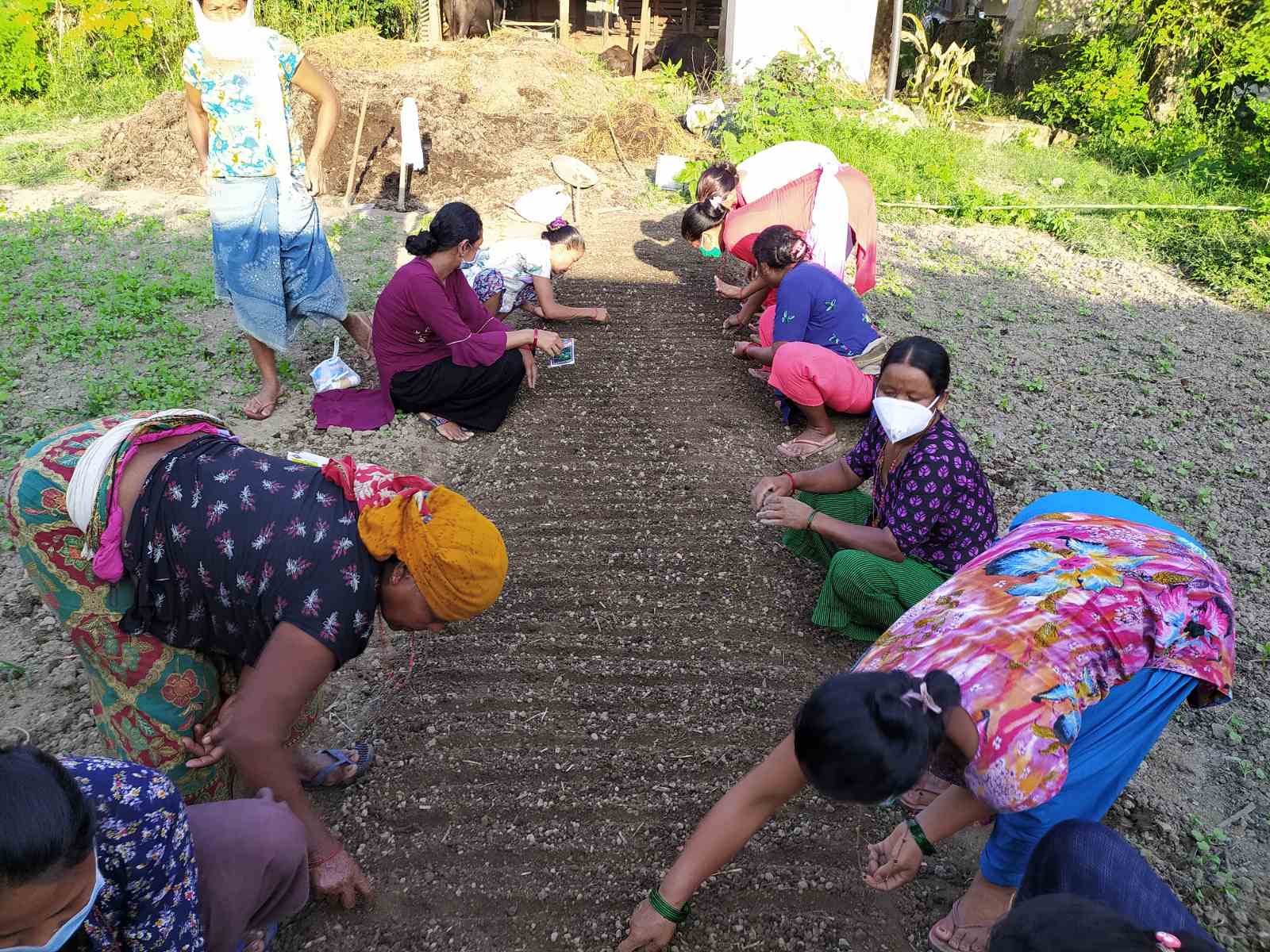
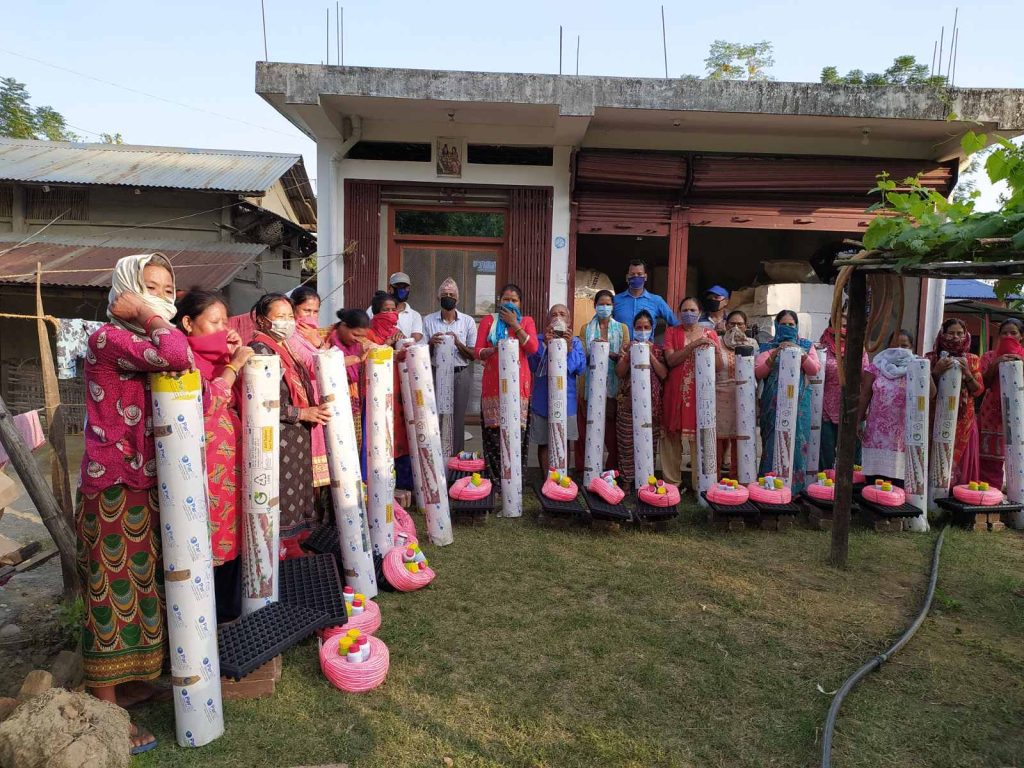
Conclusion
The IRDN project successfully empowered communities by fostering sustainable economic opportunities and resilience. By integrating modern agricultural practices, infrastructure development, and skill-based training, the project not only improved livelihoods but also laid the foundation for long-term socio-economic growth.
